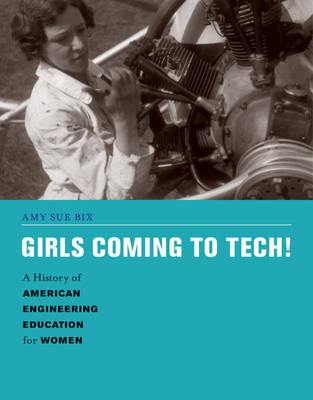
- Retrait gratuit dans votre magasin Club
- 7.000.000 titres dans notre catalogue
- Payer en toute sécurité
- Toujours un magasin près de chez vous
- Retrait gratuit dans votre magasin Club
- 7.000.0000 titres dans notre catalogue
- Payer en toute sécurité
- Toujours un magasin près de chez vous
84,95 €
+ 169 points
Description
How women coped with both formal barriers and informal opposition to their entry into the traditionally masculine field of engineering in American higher education. Engineering education in the United States was long regarded as masculine territory. For decades, women who studied or worked in engineering were popularly perceived as oddities, outcasts, unfeminine (or inappropriately feminine in a male world). In Girls Coming to Tech!, Amy Bix tells the story of how women gained entrance to the traditionally male field of engineering in American higher education. As Bix explains, a few women breached the gender-reinforced boundaries of engineering education before World War II. During World War II, government, employers, and colleges actively recruited women to train as engineering aides, channeling them directly into defense work. These wartime training programs set the stage for more engineering schools to open their doors to women. Bix offers three detailed case studies of postwar engineering coeducation. Georgia Tech admitted women in 1952 to avoid a court case, over objections by traditionalists. In 1968, Caltech male students argued that nerds needed a civilizing female presence. At MIT, which had admitted women since the 1870s but treated them as a minor afterthought, feminist-era activists pushed the school to welcome more women and take their talent seriously. In the 1950s, women made up less than one percent of students in American engineering programs; in 2010 and 2011, women earned 18.4% of bachelor's degrees, 22.6% of master's degrees, and 21.8% of doctorates in engineering. Bix's account shows why these gains were hard won.
Spécifications
Parties prenantes
- Auteur(s) :
- Editeur:
Contenu
- Nombre de pages :
- 376
- Langue:
- Anglais
- Collection :
Caractéristiques
- EAN:
- 9780262546515
- Date de parution :
- 01-11-22
- Format:
- Livre broché
- Format numérique:
- Trade paperback (VS)
- Dimensions :
- 178 mm x 229 mm
- Poids :
- 580 g

Les avis
Nous publions uniquement les avis qui respectent les conditions requises. Consultez nos conditions pour les avis.






